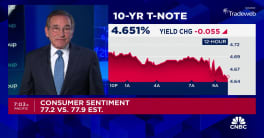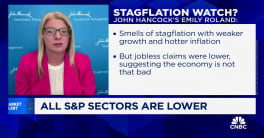HR 3915: A FRANK Discussion (11/8/2007)
HR3915 Update (11/7/2007)
Sides are quickly being drawn over a pending bill before the House of Representatives which, if passed, will put in place some stringent new standards for mortgage underwriting and the regulation and compensation of mortgage brokers.
HR 3915 is expected to be voted on by the House Financial
Services Committee on Tuesday, November 6. Favoring the bill are consumer groups
such as the National Center for Responsible Lending, and in strong opposition
are industry supports like the National Association of Mortgage Brokers (NAMB)
and the Mortgage Bankers Association.
HR 3915, introduced by Representative Bradley Miller (D-NC) and cosponsored
by 21 other members of the House, modifies three major sections of Truth
in Lending Act (15 U.S.C. 1602), Title I deals with mortgage origination;
Title II outlines minimum standards for mortgages, and Title III addresses high
cost mortgages.
Here is a summary of the bill as it was submitted to the House.
Title I requires licensing or registration of mortgage originators. The Department of Housing and Urban Development is charged with creating a registry for originators who are not covered by state regulation or affiliated with depository institutions. The legislation appears to assume that those originators who are so affiliated are now appropriately regulated.
This section establishes a "Duty of Care" for mortgage originators which requires that they "diligently work to present the consumer with a range of residential mortgage loan products" that the consumer can qualify for and which are appropriate to his current circumstances and that the originator make full, complete, and timely disclosure to each such consumer which includes the comparative costs and benefits of each product, and nature of the originator's relationship with the consumer and that the originator discloses if he is or is not working as an agent of that consumer. The originator must also disclose any relevant conflicts of interest.
Originators are prohibited from "steering." The proposed law states that an originator may not receive, directly or indirectly, any incentives (and in the most controversial provision, expressly includes yield spread premiums in that definition) that are based on or vary with the terms of the loan.
Title II, which sets minimum standards for residential mortgages states that no creditor may make a residential mortgage loan unless he first makes a reasonable and good faith determination based on verified and documented information that, at the time the loan is consummated the consumer has a reasonable ability to repay the loan under its terms and to pay all applicable taxes, insurance, and assessments. This provision also extends to cases where a consumer has multiple loans against the same property; the originator is charged with taking into account the total payments on these obligations. These determinations about ability to repay must be based on a consideration of the consumers' current and expected income, credit history, other obligations, employment status, debt-to-income ratio and other financial resources other than any equity in the secured property. (The emphasis is ours.)
Under this ability to repay provision, adjustable rate mortgages which defer repayment of principal and/or interest (with the exception of reverse mortgages) must be evaluated on the basis of the payment needed to amortize the loan by its final maturity.
Title II also requires the originator of a subprime loan to determine that any refinancing will "provide a net tangible benefit to the consumer." Conventional loans are presumed to meet this requirement so long as the interest rate does not exceed the rate on comparable Treasury bills by 3 points (5 for junior liens) while subprime loans are acceptable if they are income verified, underwritten based on the fully-indexed rate plus taxes and insurance, are not negatively amortizing, and the creditors debt-to-income-ratio after the loan is funded will not exceed 50 percent. Loans must have either a fixed rate for the first 7 years or have a margin less than 3 percent over its index. Such a subprime mortgage is generally known as a Qualified Safe Harbor Mortgage.
Title II also prohibits subprime prepayment penalties and limits prepayment penalties on conventional loans to 3 years (or 3 months before reset on an adjustable rate loan). It bans mandatory arbitration on any residential mortgage and prohibits class actions against and provides other protections from liability for assignees of loans.
Title III creates special protections for high-cost mortgages which are defined as having points and fees in excess of 5 percent of the loan amount; OR an APR exceeding comparable treasuries plus 8 points (10 for junior liens); or a prepayment penalty above 2% of amount prepaid or extending longer than 30 months into the term of the loan.
The section also defines points and fees and sets rules for yield-spread premiums, prepayment penalties, single premium credit insurance, and other fees already contained in the existing Home Ownership and Equity Protection Act (HOEPA.) The definitions exclude bona fide discount points for conventional rate mortgages.
Title III also prohibits the following on high-cost loans: balloon payments; recommending or encouraging default; excessive late fees; call provisions; financing any points and fees or prepayment penalties; abusive modification or deferral fees and requires pre-loan counseling for high-cost mortgages.
The entire text of the legislation can be read here.
Opinions pro and con the legislation can be found at websites maintained by The Center for Responsible Lending (CRL), Mortgage Bankers Association (MBA) and National Association of Mortgage Brokers (NAMB).
Please share your opinions of HR 3915.
If you oppose HR3915 you can use the following template, contributed by one of our readers, as a starting point for a letter to your state representative.
**HR3915Letter**SPREAD THE WORD - Forward this story
Contact Your Congressman
SIGN THE PETITION







